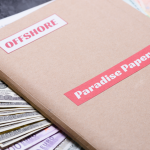Billionaires Clean Up Under COVID-19, As the Rest of the Planet Suffers

Institute for Policy Studies research released last week outlines that despite an initial downturn in wealth during the early stage of COVID-19, the twelve richest US billionaires have been building up their wealth during the pandemic, whilst much of their nation is facing economic devastation.
Dubbed the Oligarchic Dozen, the top twelve billionaires saw their combined wealth reach US$1.015 trillion. This involves a US$283 billion joint rise since 18 March, which marks a 40 percent increase in the dozen’s finances.
Tesla boss Elon Musk is the billionaire who’s profited most during the global health crisis, as his wealth has tripled to US$73 billion, which accounts for a 197 percent increase since the onset of COVID-19.
“This is a disturbing milestone in the US history of concentrated wealth and power,” said institute researchers Chuck Collins and Omar Ocampo. “This is simply too much economic and political power in the hands of twelve people.”
Stimulating the rich
Writing in Business Insider journalist Hiatt Woods explains that the ultra-rich in the US are getting wealthier as the government disproportionately gives more aid to large companies during an economic crisis, which means when the market bounces back, the rich have excess cash to invest.
Woods states that this was the scenario following the Global Financial Crisis: from 2009 to 2012, the income of the 99 percent in the United States grew by only 0.4 percent, while the wealth of the top 1 percent grew by 31.4 percent over that same period.
The crisis down under
Economic journalist Alan Austin set out earlier this week that the Australian ultra-rich are continuing to turn a good COVID profit, while the majority of the nation is dealing with downturn. Resource exporters are benefiting from “near-record prices”, while the mining boom continues.
“The extent to which the corporate sector gets richer while the people get poorer during global recessions depends largely on what governments allow,” Austin maintains. And he adds that recent comments made by treasurer Josh Frydenberg foreshadow corporate tax cuts.
The Morrison government has already indicated it will bring forward tax cuts for very wealthy Australians, which were slated for 2024-25. But as Queensland University Professor John Quiggin explains these cuts were based on strong economic growth, which COVID-19 has since shattered.
Meanwhile, the PM established a body made up of corporate executives charged with guiding the economy post-pandemic.
Known as the National COVID-19 Commission Advisory Board (NCC), the body – which has now been embedded in government – is pushing for a taxpayer-funded gas-driven recovery.
And as for Australian billionaires, one only has to look to Clive Palmer to see that they don’t seem to be overly concerned with how the rest of the nation is doing.
Palmer launched an ultimately unsuccessful Federal Court challenge against the WA government’s border closure to prevent COVID-19 crossing between states, claiming this measure that’s designed to save lives is hindering his profit.
Obviously, Palmer’s more than A$4 billion just doesn’t cut it.







